 To many job seekers, the interview is the most difficult part of the job-seeking process. In fact, it is the most crucial point in deciding whether you will be offered a job and it is extremely important that a tremendous amount of thought, research, anticipation and preparation are put into your upcoming interview.
To many job seekers, the interview is the most difficult part of the job-seeking process. In fact, it is the most crucial point in deciding whether you will be offered a job and it is extremely important that a tremendous amount of thought, research, anticipation and preparation are put into your upcoming interview.
Let’s face it: When you are in a final interview situation, you are probably one of a handful of candidates who are being considered. You, like the other candidates, have proven that you match the requirements of the position; in other words, any of the finalists probably COULD do the job. But at the interview, the hiring manager is now trying to determine other things that will identify the ‘unspoken’ qualities and differentiators that will help them decide who is the best fit for the team.
Before the interview
|
If you make it to the interview stage, there are several things that you want to do to prepare.
Give yourself an inner-pep talk to get yourself motivated and excited about the interview opportunity; there’s a sweet spot you want to aim for in any interview – it exists between desperation and arrogance – it’s called ROCK SOLID CONFIDENCE! You only get there by believing in yourself, adequately preparing for the interview and having solid examples from your qualifications, your past experience and your accomplishments that demonstrate your relevance and why you are the best person for the job.
In any interview, you want to feel as if you have confidence and are in control of demonstrating why you are the best fit for the job. The goal for any interview is to make it more of a relaxed conversation than it feeling like its ‘them against me’ where they are rattling off pre-written questions and simply copying your answers down.
Think about it: if you’ve ever interviewed somebody for a job, you know how challenging it can be, but also how refreshing it is when the right person comes along and confidently demonstrates all of the traits you are looking for in that new employee.
Eye contact, body language, consistent and precise answers to questions all help you to engage the interviewer. Relax, but try not to drone on and on as you answer a question; often that shows a sign of desperation in trying to make your answer ‘fit’ the question. In addition, as one HR executive recently told me, “If they are boring to me, it’s a good sign they will be boring to my important clients.”
Most importantly… SMILE! A smile is disarming not only to the interviewer but it also helps you to relax.
Here are five tips to help you prepare for the interview:
1.) Re-read the job posting, your resume and cover letter. This will immediately get you thinking about how your qualifications and background are connected to the job you’ve applied for.
You obviously impressed the company by being able to connect your background to the job requirements as spelled out in the job posting. Now, you have to make this same connection in one-on-one, person-to-person interview.This is a critical element!
One recruiter I talked to compared it to reading a really good book and then being disappointed by the movie that was made from the book. In other words, translating what is on your resume to your live interview must connect the expectations you’ve set on paper to how you now present yourself in person.
2.) Research. This will show you understand their company, their industry and connect how your background adds value to their mission.
There are literally dozens of research tools at your fingertips to gain a full understanding of the company you are applying to. From the company’s website, to online news sources that give you the latest news about the company to industry reports that can help you put their organization into context of the industry they operate.
At the interview, while there won’t be an expectation that you are an expert in their business, you should be able to talk intelligently about the company. You should also be able to show WHY you want to work for the company and how your skills would add value to the company. Having a thorough understanding of their business is one of the only ways to make that authentic connection between your background and their business.
As one HR recruiter told me, “It’s an automatic ‘F’ if the job seeker doesn’t have a solid grasp of our company and what we do. There’s no good reason for this and it demonstrates they have little to no ambition if they can’t do some simple research on us.”
3.) Practice answering the question that you will be asked at every interview: “Can you tell us about yourself?” This will allow you hit the highlights of your qualifications and experience and allow you set the direction of the interview from the beginning.
The way you answer this question can put you in the driver’s seat for the rest of the interview. It is your first and most important opportunity to give a short synopsis showing the chronology of your career and most importantly begin highlighting and tying the relevance of your experience to the job you are applying for.
4.) Anticipate the questions that will be asked of you and practice answering them. This will help you connect your qualifications to the job posted and control your strengths that YOU want to get across during the interview.
When you read a job posting, you can tell there are probably five critical things in terms of both the job description (what you will be required to do) and the requirements of the position (experience/skills required for the job). You should be fully prepared to talk specifically about your past qualifications and specific experiences to show how they are relevant to the job you are applying for.
Consider asking yourself, “What are three-to-five good reasons why I’m the best fit for this position?” File these reasons away in your head as they are your mantra throughout the interview – the things you want to get across during the interview. You also should have examples from your past work (past projects, accountabilities, accomplishments) connecting how your qualifications are matched to the job you are applying.
At the end of the interview, there will be a question of you, “Is there anything else you’d like to add?” At this point, think through the things you wanted to get across that prove you are most qualified for this position. Were you able to connect them to the job you are applying for? If not, now is the time to summarize for the interviewer why you believe your qualifications, background and experience are best for the position.
One successful job seeker I coached told me, “When I really started anticipating obvious questions, I found myself more prepared for the interview. In the past, some of the questions left me feeling like the proverbial ‘deer in the headlights.’ Truly thinking about how I would answer questions gives me a lot of ammunition in terms of putting my qualifications and accomplishments on full display and a side effect was that I developed a deeper passion for the position which also helped me convince the employer I was the right person for the job.”
5.) Conduct a mock interview with a friend/mentor. This will help you practice and refine your answers speaking out loud in front of another person.
Write down the questions you have anticipated that you might get asked and have a friend ask you the questions to practice your answers. Have your friend critique you. Are you getting the main points you want to get across? Are you engaging? Are your answers concise, clear and understandable?
Remember, being prepared for the interview is one of the most critical parts of ‘acing’ the interview and getting a job offer. It helps you relax, and you enter the interview with a great deal of confidence.









